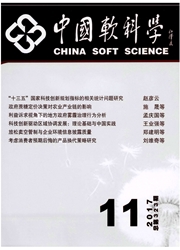

 中文摘要:
中文摘要:
不同所有制部门间的工资差距是近年来中国收入差距现象中的一个显著维度,国有与非国有部门在不同时期,经历了由折价到溢价的工资差距现象,构成了其中一个典型特征。但由于进入国有部门者与非国有部门者可能存在系统性差异,所有制性质在多大程度上可解释二者工资差异存在质疑。本文从工资决定因素分析的视角,通过Treatment-effects模型校正样本自选择偏差,利用CHNS数据分析中国部门工资决定中各因素的影响,尤其是所有制性质对部门工资差距的影响。基于1993-2006年CHNS数据的实证分析表明,部门性质对部门工资差距具有显著的影响,这种影响呈现出由折价向溢价转换的分阶段特征,表现出了较强的政策与体制相关性。
 英文摘要:
英文摘要:
Ownership is a source of segmentation associated with institutional arrangements,which causes section wage differentials.In this article,we use CHNS-a micro level data for China to estimate the treatment effect of ownership on China sector wage differentials.We find that entering public sector have significant positive treatment effect on wage,and selection bias leads the least squares overestimate the treatment effect of sector ownership.Through a historical comparison,it concludes that this sector wage differentials' transition from negative to positive is institution and policy-related.
 同期刊论文项目
同期刊论文项目
 同项目期刊论文
同项目期刊论文
 期刊信息
期刊信息
